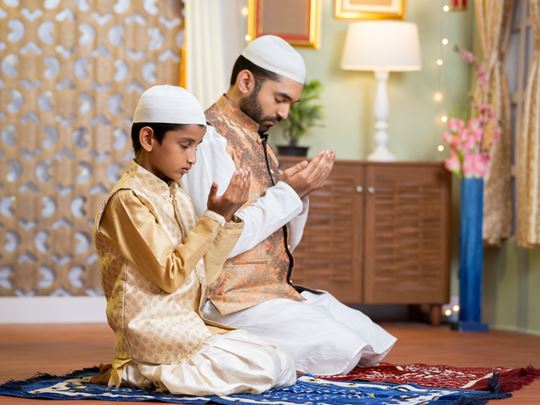Why is it important to nurture your foster child’s faith?
When you grow up in a particular religion, it can become part of your identity. It forms part of your heritage and culture, often being passed down through many generations. Religion can inform our values, morals, and sometimes the food we eat. Being part of a religious community can help us understand who we are and develop our sense of belonging. Our faith can give us hope and meaning and be the only steadfast thing in our lives when things are happening that are out of our control.
At ACS, we are dedicated to matching children with foster families who share the same religion and culture. By doing so, we provide foster children with the time and space to discover what their faith means to them, which supports their understanding of their culture, heritage and identity.

Supporting Foster Children Questioning their Faith
There are many reasons why a child in foster care could have complex feelings about their faith. For example, if they have experienced abuse and neglect, they may connect their religion to their trauma. They may also feel abandoned by their faith or, due to their age, not yet fully understand what their faith means. By offering your support and guidance, you can help the child in your care make sense of their feelings and begin viewing their faith in a new light.
Offer non-judgemental support
When you love your religion and have a strong faith, it could be hard to understand why your foster child is questioning theirs. Communication is essential for understanding their feelings. They need to know they can talk to you and receive non-judgemental support. If your foster child struggles to open up about their feelings, they may use other forms of communication. For example, they may express big emotions about attending a religious meeting or withdraw from faith practices and traditions.
Talk to them in a quiet and comfortable setting, and ask leading questions that require more than a yes or no answer. For example, you could say, ‘I noticed you didn’t want to be involved in prayers. How does praying make you feel?’ If they are ready to talk to you about how they feel, actively listen and offer support, letting them know it’s okay and that you understand, coming up with a solution together. If they aren’t keen to open up, let them know you are there for them when they are ready to talk.
Let your foster child set the pace
Whether your foster child is questioning their faith or rejecting it altogether, forcing them to engage in religious activities could push them further away. So let your foster child set the pace, slowly reintroducing them to their faith, allowing them to be curious and answering any questions they may have.
You could introduce your foster child to children you know of the same faith or attend fun activities organised by your local place of worship. This could be a less intense way of helping them connect with their faith and could help them find a sense of belonging within their religious community.
Be a faith role model
Children may question their faith if they have had negative experiences with religious role models, which can give them a skewed idea of what it means to be a person of faith. You can help change their perception by being a positive role model and demonstrating how you put your faith into practice.
Being patient, understanding and providing a safe and stable home will go a long way in improving their perception of your shared religion. You could also introduce them to other faith role models and teach them about respected figures in your religion. This will help them understand that, although their negative experience of religion is valid, it doesn’t represent the faith as a whole.
Access further support
At ACS, our support for foster parents includes links to mosques, churches and synagogues that can provide advice to help you guide your foster child on their faith journey.
Our peer group meetings, activities and events also allow you to gain valuable insight into caring for a child’s spiritual well-being from other foster parents. Many of our foster parents become good friends, leaning on each other through challenges and celebrating festivals together.
If you’d like to become a foster parent and want to learn more about the positive impact foster parents of faith have on children in foster care, get in touch.
